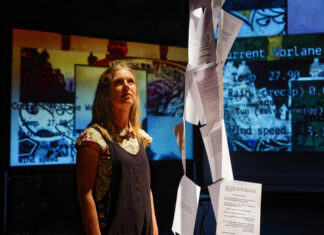By JOHN VAN KLAVEREN
A Geelong youth homelessness program, which has been hailed as a model internationally, is having difficulties finding funding.
The Geelong Project has been identified as a leading program in reforming traditional approaches to youth homelessness policy.
But the program is being funded by Barwon Child, Youth and Family (BCYF) because it has been unable to attract state or federal government funding.
The Geelong Project is a partnership between schools and youth services across Geelong enabling early intervention with young people at secondary school level identified to be at risk.
The Costs of Youth Homelessness in Australia (CYHA) report released last week said the program could save millions of dollars if rolled out nationally.
The report said the cost of dealing with homeless young people through the health and criminal justice systems was higher than the cost of all homelessness services across Australia for people of all ages.
The report called for a complete reform of youth homelessness policy in Australia.
It cited The Geelong Project’s community of schools and services model as an innovative and successful early intervention programs.
BCYF head Sandy Morrison said he welcomed the report’s call for further investment in early intervention strategies.
“The report describes the early intervention work pioneered and implemented by The Geelong Project as a leading exemplar of a collective impact model,” Mr Morrison said.
“The Geelong Project is calling for reform of local school and support service systems to better identify and respond to disadvantaged youth and families early, thus diverting them from a life course of homelessness and disadvantage.”
The program is being piloted in two locations in New South Wales with a further seven foreshadowed in the near future, Mr Morrison said.
Pilot sites were also under development in South Australia and there was interest from Canada and the United States.
Almost 42,000 young people aged 15 to 24 accessed homelessness services across Australia in 2014 to 2015.
Mr Morrison said a significant number were forced to leave home because of family violence.
“Without early intervention, homelessness results in significant health risks, an increased risk of interacting with the criminal justice system and, for many who are early school leavers, the possibility of life-long disadvantage.”









